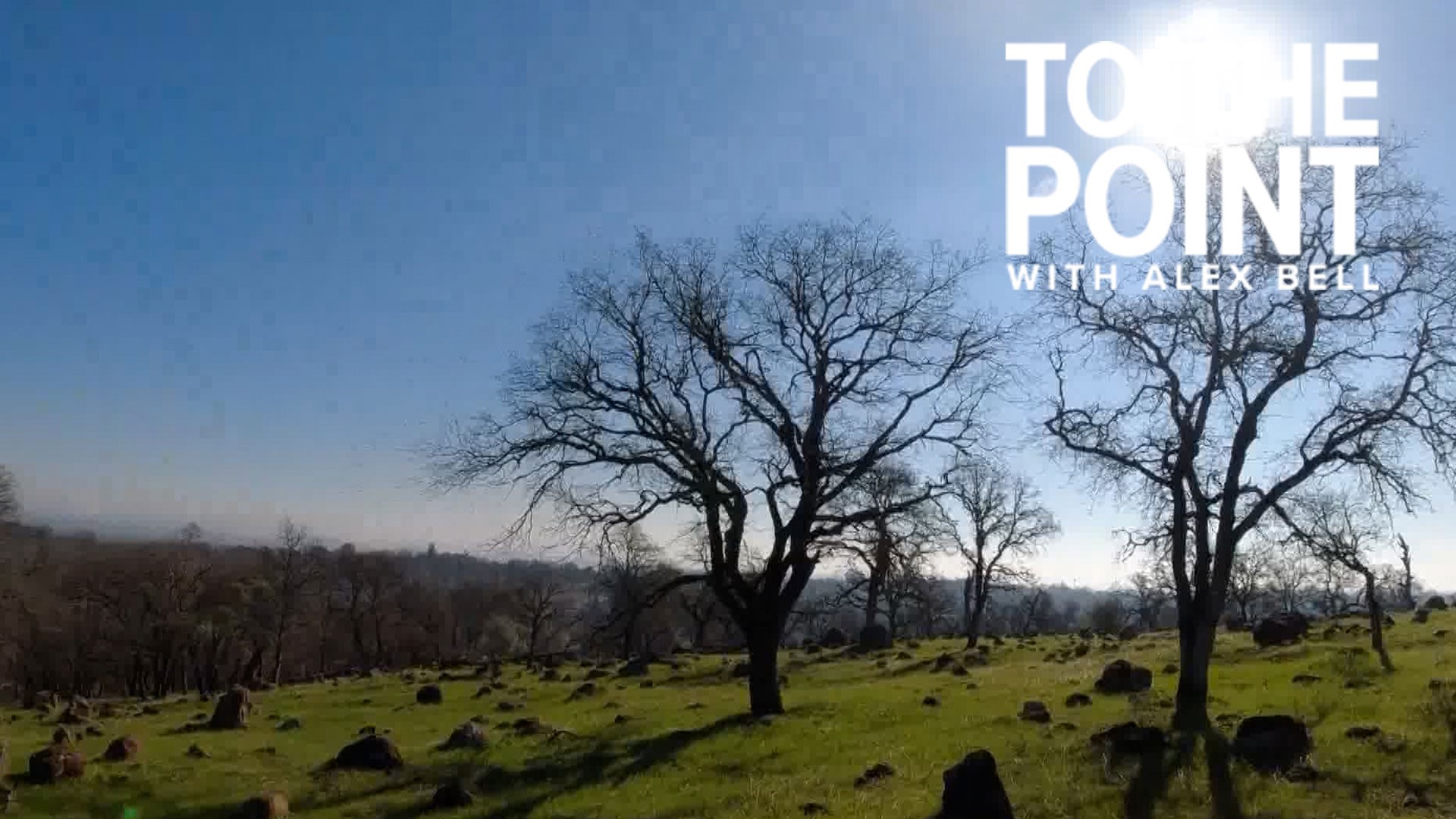ROCKLIN, Calif. — Hundreds of untouched acres in a growing, thriving city sounds like a developer’s dream — a blank canvas for hundreds of homes.
But what if that land was home to a threatened bird species, historical Native American sites and thriving biodiversity?
After decades of controversy, the fate of Clover Valley in Rocklin has been decided.
Altogether, Clover Valley is a more-than-600-acre stretch of land within Rocklin city limits. For years, private developer and owner Clover Valley Partners planned on building more than 500 high-end, single-family homes there. A group of concerned citizens fought the developer over the course of decades.
In 2019, the developer donated more than 100 acres of Clover Valley to William Jessup University, opening the door for Jessup to purchase 400 additional acres — an agreement finalized in December — with a down payment of $2.25 million. The developer still owns the ridgetop surrounding Clover Valley, which amounts to a little more than 100 acres.
"When you walk down into the valley here, it's like you're being transported back in time,” said associate professor Michael McGrann. “You wouldn't know that suburbia is right here."
McGrann is chair of William Jessup University’s Institute for Biodiversity and the Environment. He said he is excited about the purchase, since Clover Valley is filled with biodiversity and opportunities for his students to learn.
“Clover Valley is really neat because it's a good representation of the ecosystems that are present throughout the Sierra Nevada Foothills. It's well preserved,” said McGrann. “We have Blue Oak Woodland on the ridgetop here. We have Valley Oaks down in the Valley. We have riparian habitat. We have grasslands down in the Valley floor. We have wetland habitat.”
In that wetland habitat of Clover Valley lives a threatened species of bird, the California Black Rail.
“We have tremendous amount of bird diversity, songbird diversity. You can hear them singing right now,” said McGrann.
For years, he said, the private developer’s plan included “a road that would transect the valley and meet up with Sierra College Boulevard on the other side. And so that would just have a profound effect on the character of the valley. Houses all in the Valley floor. Houses on the ridge tops as well.”
People have been battling to preserve Clover Valley for about three decades, he said.
Jessup University is doing this in partnership with Placer Land Trust.
“This is really just a once-in-a-lifetime type of opportunity,” said Placer Land Trust executive director Jeff Darlington. “Placer Land Trust works with willing landowners and conservation partners to permanently protect land here in Placer County for future generations. That could be agricultural land, natural land, recreational land, any land that has benefit for our community.”
Placer Land Trust has protected more than 14,000 acres throughout the county, and now it’s partnering with William Jessup University to turn Clover Valley into a preserve.
“There is nothing like this left; this is the only large piece of undeveloped open space in the city of Rocklin,” said Darlington. “As Placer County continues to grow, we need to make sure that some of these special places are protected. As more and more people build homes here and come here, this is why they come you know: they want to they want to be close to nature.”
CJ Taylor is a senior biology student at William Jessup University and has learned from his hands-on experiences in Clover Valley, as part of McGrann’s classes.
“It's pretty cool to think that this is a place that students - well after all of us - could come and still learn and practice…It's inspiring, in a lot of ways,” said Taylor. “Within my short lifetime, I have seen how places like this have kind of started to be encroached upon and disappear, so just to have a little area like this right next to Rocklin is very neat.”
Clover Valley is just about a 10-minute drive from Jessup, and McGrann sees it as a living laboratory — not only for his students but, eventually, also for the public.
“There's 34 known archaeological sites: Indian grave sites, house sites, like where they built their lodges… acorn mortar holes,” said McGrann. “So this place is sacred to the Native American people, and to the Maidu and Miwok Indians of this area.”
Placer Land Trust plans on consulting the Indigenous community as it maps out Clover Valley’s future.
“As Jessup and the Land Trust work to prepare a management plan for this property, we’ll definitely be consulting with the local tribes,” said Darlington. “That includes the United Auburn Indian Community and other tribal and Indigenous resources that are available to us here locally.”
Between the more-than-100 donated acres and 400 purchased ones, the floor and slopes of Clover Valley will be preserved like this forever, Darlington and McGrann said.
The school, however, still needs to raise $7.75 million dollars in two years. Jessup plans on reaching out to the state, city of Rocklin and other entities for contributions. No amount is too small, they say, and people who are interested in contributing can contact McGrann HERE.
The $2.25 million down payment was comprised of $1 million from the city of Lincoln, $1 million from Placer County and $250,000 from Emigrant Trails Greenway Trust, which is a private foundation that invests in the protection of open space in the foothills area.
While Jessup University currently owns the land, Placer Land Trust will place a conservation easement on the property only once it’s fully paid. That will finalize the land’s permanent protection.
Again, Jessup University currently owns more than 500 acres comprising the entire valley floor and slopes, but that private developer still owns the ridgetops surrounding the valley. Jessup wants to buy that property eventually, to keep Clover Valley entirely pristine, but they estimate that could cost another $11 million, since that property, with its views, is prime real estate.



















